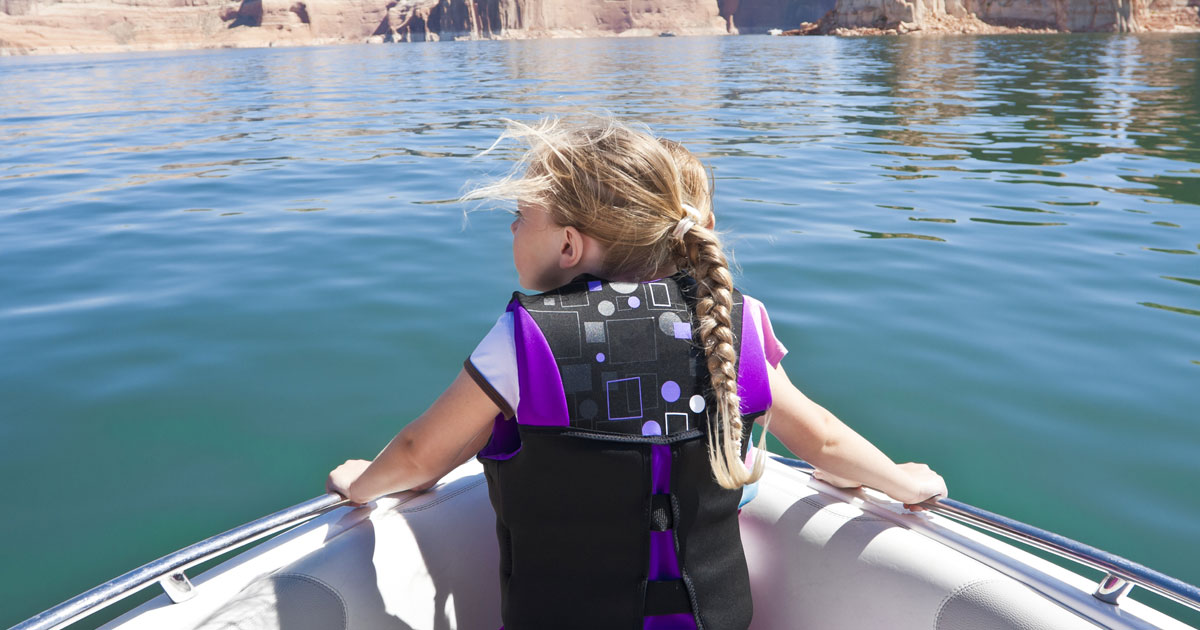Life moves on after divorce. For some divorced parents, this will mean moving to a new home, a new city, or even a different state to pursue career opportunities, life goals, or new relationships. When a divorced parent has custody of their minor child pursuant to a court order, there are rules and regulations that must be followed. It is crucial to understand these rules before attempting to move with your child.
Even if you have full custody, you need a thorough understanding of your rights and responsibilities as a relocating custodial parent if you wish to avoid legal liability. Failure to follow laws and court orders can even cause your custody arrangement to be revisited by a judge.
Relocation and Child Custody in Arizona: The Basics
The first question many divorced parents have when it comes to relocating is usually “how far can a parent move with joint custody?” The answers are often not cut-and-dried, however. Child custody cases can look quite different from one another, even within the same state. These differences are usually based on a mixture of circumstances, including the content of the parenting agreement, the nature of the move, and more.
Under Arizona law, a “relocation” is any move to a new address, whether it’s across the street, across town, or out of state. When moving to a new residence in the same jurisdiction, there is typically little required other than notifying the other parent and any relevant court authorities of your new address.
The rules are much different when it comes to moving out of state. Rules also apply when moving more than 100 miles away, even when staying within Arizona borders. When parents share joint custody of a child, the parent who plans to relocate must notify the other parent at least 45 days ahead of time.
It is important to remember that the other parent in the situation also has rights. If your ex-spouse notifies you of their intent to relocate with your minor child, you may petition the court to have this relocation denied. If the judge backs your petition, this does not mean your ex-spouse is not allowed to move. Instead, it simply means they cannot move with your child. If they decide to go ahead with their relocation anyway, the original child custody order may need to be reopened and amended to make you the custodial parent. This scenario is a prime example of how a mother can lose custody in Arizona.
The Uniform Child Custody Jurisdiction and Enforcement Act
Nearly all interstate custody issues in the United States are governed by the Uniform Child Custody Jurisdiction and Enforcement Act (UCCJEA). This is not a federal law, but a “uniform state law” which works in a similar way since it has been broadly adopted across jurisdictions. Currently, 49 states including Arizona (as well as Washington, D.C., Guam, and the U.S. Virgin Islands) operate under the UCCJEA.
The UCCJEA ensures that whichever court first makes a child custody order has exclusive and continuing jurisdiction over custody matters for the minor children involved in that order. Whatever state this court operates in is, by default, the child’s home state.
This legal status as home state is maintained so long as two conditions are met:
- It was the child’s physical home state within 6 months prior to the most recent legal action filed with the court.
- At least one of the child’s parents still lives in the home state.
If no state qualifies as a child’s home state under those criteria, another state can be established as the home state and will then have jurisdiction over any subsequent custody matters. For this to happen, the child and at least one of their parents must demonstrate a “significant connection” to the new home state. When proving such a connection in court, and in determining which state should have jurisdiction over a custody case, many factors may be taken into consideration:
- The child’s physical presence in that state; is the child already living in-state? If so, how long have they been here?
- The ability of the custodial parent to provide basic resources in that state; do they have a job in-state?
- The presence of support systems such as extended family.
- Any history the child or parent(s) may have in that state.
- Any risk factors involved in the case, such as domestic violence.
- Which state has the best resources for meeting the child’s needs and those of their custodial parent.
- The distance between the two states.
- The financial circumstances of the parents and their ability to provide a stable environment for a child.
- Whether one court is already familiar with the family or the case.
- The ability of each parent to care for the child in terms of their physical and mental health.
- The child’s relationship with each parent
- The child’s ability to adapt to new surroundings
The importance of having a home court established and a valid court order pertaining to custody cannot be overstated. Moving out of state with a child and no custody agreement can subject you to serious legal liability. Whether you’re moving to Arizona or leaving for another state, you must correctly file all necessary paperwork such as a notice of intent to relocate. Arizona courts consider the welfare of minor children to be of the utmost importance.
Modifying Custody Orders Under the UCCJEA
There are powerful legal mechanisms within the UCCJEA that a divorced parent can use to request a modification to a custody order. Modifications can occur when they or the other parent are planning to relocate with their minor child.
Be aware that the original custody order will be upheld, and custody will remain the jurisdiction of the original home court, unless either of two circumstances occur:
- The child and both parents have relocated out of state (not necessarily all to the same state)
- The court itself decides that its jurisdiction over a custody case is no longer appropriate, because another state has more contact with the child and their parent(s)
If such a determination is made and the original home court has decided to relinquish their jurisdiction over custody matters, they will issue a court order to that effect. This order must be issued before the new home state can proceed with issuing their updated custody order.
This process of determining whether the original home court should give up their jurisdiction can be triggered by a parent petitioning the court. A divorced parent or their legal counsel can file a request with the original home court asking them to give up their jurisdiction because their former state no longer has substantial connections to the child and their parent(s). If sufficient facts are available to support this assertion, the court will grant the request and issue the necessary order to relinquish jurisdiction over the minor child(ren) involved in the case.
Emergency Orders Under the UCCJEA
The process of having the original home court give up their jurisdiction can be tedious and involve a great deal of fact-gathering and testimony. The court must ensure it is doing what is in the best interest of the minor child.
In some cases, however, the process of getting legal permission to relocate out of state with your minor child can be expedited with an emergency order if extenuating circumstances make it necessary. An example of this would be a child at risk from an abusive parent. The UCCJEA allows for these emergency orders in the interests of keeping children and parents safe. The court granting the emergency order must also notify the local court in the jurisdiction to which the child is moving.
Such emergency orders are rare. Even when they are granted, they are not an alternative to the regular process of transferring jurisdiction from the original home court to one in another state. Emergency orders issued under the UCCJEA are only granted on a temporary basis to keep vulnerable minor children and their parents away from danger during the legal process of officially establishing a new home state. The custodial parent must eventually return to the original home court to have the original order officially and permanently modified or rescinded.
Frequently Asked Questions (FAQ) about Arizona Laws on Taking a Child Out of State

Q: If I Petition an Arizona Court For a Modification to My Custody Order, Do They Have to Issue a New Ruling?
A: No. Even if a court in Arizona has grounds for claiming legal jurisdiction over a child custody matter, it may still decline to revisit a custody case to issue a new ruling. The court may rule that it is an “inconvenient forum” for the case at hand. This means that it has determined a court in another state would be a more appropriate forum for issuing a new custody order and is refusing to hear the case.
Q: If I Move to Arizona From Another State, can I Simply Request the Arizona Courts to Take Up My Custody Case and Issue a New Order?
A: No. Under the terms of the UCCJEA, courts in Arizona and other UCCJEA states are bound by law to respect and enforce valid child custody orders that have been issued by other states.
Q: What Can I Do if I Move to Arizona From Another State and Need Help Enforcing an Existing Custody Order?
A: When a parent requires Arizona’s help enforcing an existing custody order from another state, that parent can register the existing custody order in Arizona. To do this, the parent should file a petition asking the Arizona court to enforce the out-of-state order. This petition will consist of a certified copy of the original custody order in addition to a determination and notice of registration.
Q: What Can I Do if My Ex-Spouse Has Violated the Terms of an Existing Custody Order by Fleeing to Arizona With My Child?
A: A non-custodial parent taking a child out of state without following the proper legal procedures is a serious violation of the law. In this case, the concerned party can once again petition the court. However, it will not be for enforcement of an existing child custody order, but for a warrant to locate the child and take them into physical custody. Because of the serious emergency nature of this situation and the potential for causing additional trauma to a minor child, these sorts of petitions are heard in court within one day.
Q: How to Win a Child Relocation Case in Arizona?
A: It can feel natural to look at divorce as an adversarial process, especially if your relationship ended on negative terms. You may feel like you’re competing with your ex at every step, including trying to hire a better lawyer, trying to get a bigger share of the divided assets, and trying to get more time with your kids. When it comes to child custody orders, however, it is important to remember that even though your marriage has ended, you and your ex-spouse are still partners in raising your children.
Child custody cases, including those involving out of state relocation, should not be approached as “win or lose” propositions. Instead, look at your child relocation case as an opportunity to make sure that a vulnerable minor child’s needs are met and that decisions are being made in their best interests. For the best possible outcomes, it is advisable to hire a qualified divorce attorney.
Child custody cases, including those involving out of state relocation, should not be approached as “win or lose” propositions. Instead, look at your child relocation case as an opportunity to make sure that a vulnerable minor child’s needs are met and that decisions are being made in their best interests. For the best possible outcomes, it is advisable to hire a qualified divorce attorney.
Q: If I Have Sole Custody, Can I Move Out of State?
A: Probably, but only by following the laws set forth by the UCCJEA. While a custodial parent with sole custody of their minor children will typically have an easier time getting a court’s permission to relocate their family, they must still follow the law and go through the necessary procedures to transfer jurisdiction and establish a new home court.
Arizona Looks at What is in the Best Interests of the Child

For Arizona parents considering relocation, this is a crucial piece of information: your plans may not be approved without clear and convincing evidence that they are in the best interests of your child. Remember, however, no two family situations are alike. Therefore, it’s important to work with an attorney who understands this and can explain how the law may apply to you and your family.
*Editor’s Note: This article was originally published March 27, 2021 and has been rewritten July 25, 2022.

Ryan Reppucci, Founder/Director of Legal Operations of The Valley Law Group, is recognized as one of Phoenix’s leading family law attorneys. After graduating from Arizona State with the highest honors and inclusion in America’s most prestigious student honor societies, Ryan attended the University of Detroit Mercy School of Law. His career as a law student was decorated with numerous awards, including the University of Detroit Mercy School of Law Book Award, nomination for membership in Who’s Who Among Students in American Colleges and Universities, as well as Moot Court.

